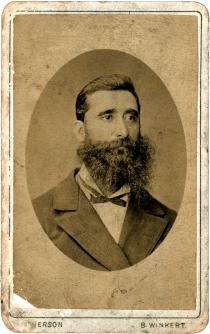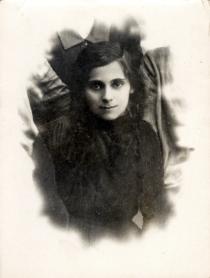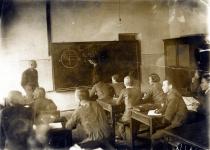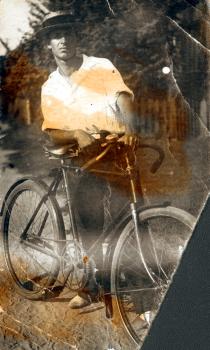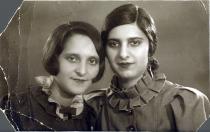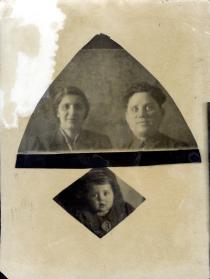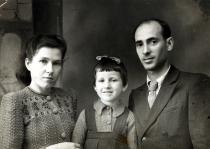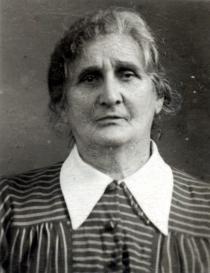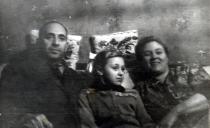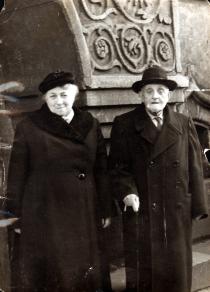In this photo is my grandfather Solomon, my mother's father. The picture was taken in Vinkert's studio in the city of Kherson in Finkelshtein's house in 1910. My grandfather Solomon and grandmother from mother's side [name is unknown] come from Bryansk region. They lived in the district center Rechitsa. They were born approximately in 1840. I know nothing about my grandmother, she died before I was born. My grandfather had a brother, of whom I do not know anything either, except that he used to visit us, when I was very small. Grandfather worked in Kiev as an accountant for a Jewish businessman Brodsky and kept all the books in Yiddish. They always spoke in Yiddish in the family, therefore I know Yiddish well since very young age. He was a religious person and regularly went to the synagogue. All Jewish holidays were celebrated in our home and everything was done according to Jewish traditions. I vaguely remember Sabbaths and other holidays. Grandfather wore a long beard. I remember one episode: when I was 4-5 years old, mother once carried me past grandfather, who was warming himself by the tiled stove wall, and I pulled grandfather at his beard. Then mother chided me for my misbehavior.
Grandfather Solomon had 5 daughters, all of whom were born in the settlement of Kholmich in Bryansk region. Grandfather lived and died in Kholmich in the family of one of his daughters in 1925. The oldest sister was my mother, she was called Sara, though in everyday life people called her 'Sophia Solomonovna'. It sounds 'Serl' in Yiddish. Other sisters were Ida, Perla, Malka and Tsilya. My three aunts - Ida, Perla and Malka - all had their own wooden houses in Kholmich, they kept cows, and had their own kitchen gardens. The settlement of Kholmich is located on a steep bank of the Dnieper River. There was no water pipe, water was dragged from wells and carried from the river. There was no Jewish community. Aunt Ida had a husband, who was a footwear cutter, making soles for boots. She was the most well to do of the sisters. Basically we lived at her house, but, certainly, we went to see other aunts, too. I, the eight-year old kid, was told that if I wanted to be able-bodied, I should pay visits to all my three aunts every morning and drink fresh milk. Russian people also lived in the settlement, but all of them spoke Yiddish. There wasn't a lot of Russian families though. Basically the population was Jewish. Everyone had their own small households and businesses: some were tailors, some - shoemakers, or cutters and the like. I learned to fish there. Once I caught a lot of fish, but an older boy came up and grabbed all the catch from me. To me it was so insulting, so I came home and cried all night. As a schoolboy I lived in Kholmich at my aunts' family one summer, and by September father took us back to Leningrad to attend to school. During the Holocaust the three of my aunts were dug alive in Kholmich.

